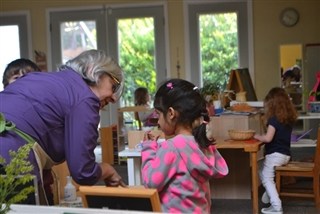News
News
Ask a Division Head: Does my child really need to make decisions and think independently?

In short, yes! As with all other skills, thinking and decision-making need to be practiced in order to build proficiency and confidence. Sometimes a simple “yes” or “no” is the best answer to a child’s question. But sometimes it is a golden opportunity for further discussion, leading him to think more deeply, learn to define his idea, and consider the consequences, both positive and negative, all of which build the important, life-long ability to make good decisions. For example, your child is invited to a play date with a friend when you already have plans to go to the park. Before saying yes, remind your child of your previous plans. Consider asking him to think of another solution such as inviting the friend to join you, rescheduling the park plans or following through with your current plans. The important part is that your child has some say and has knowledge, in simple terms, of the ramifications of one choice over another.
Opportunities to practice thinking skills also arise in daily routines. You can help your child learn to come to logical conclusions about what to do in various situations. The key is to give your child just the right amount of guidance and allow him time to think. For example, on a snowy morning instead of saying, “Get your boots,” ask, “Which shoes will keep your feet warm and dry today?” Be prepared for illogical choices. Children learn best by being allowed to make age-appropriate, low-risk errors. In other words, cold toes at age three may lead to warm toes at age four! Keep in mind, some lessons may need to be learned more than once!
As your child matures, he should learn that you are not the only resource for information. Help your child think deeply to answer his own questions. Affirm the wonder he experiences, and then ask the who, what, why, where and how questions before you check Google. How do you think the ship got in the bottle? Where do you think the water in glass went? Which path do you think will be faster? These types of questions can also help your child learn to take care of his needs. What do you think will happen if you stay up late tonight? Why do we eat fruits and vegetables every day and dessert only some days?
As your child begins to understand that his opinion matters, and he develops the skills and is allowed the time needed to think, he will become better and faster at problem-solving. He also receives the subtle message that he is a capable, valuable, contributing member of his family and community. He becomes a confident decision-maker and discovers he is his own source of creative and original solutions because thinking skills are woven into his natural fabric.
